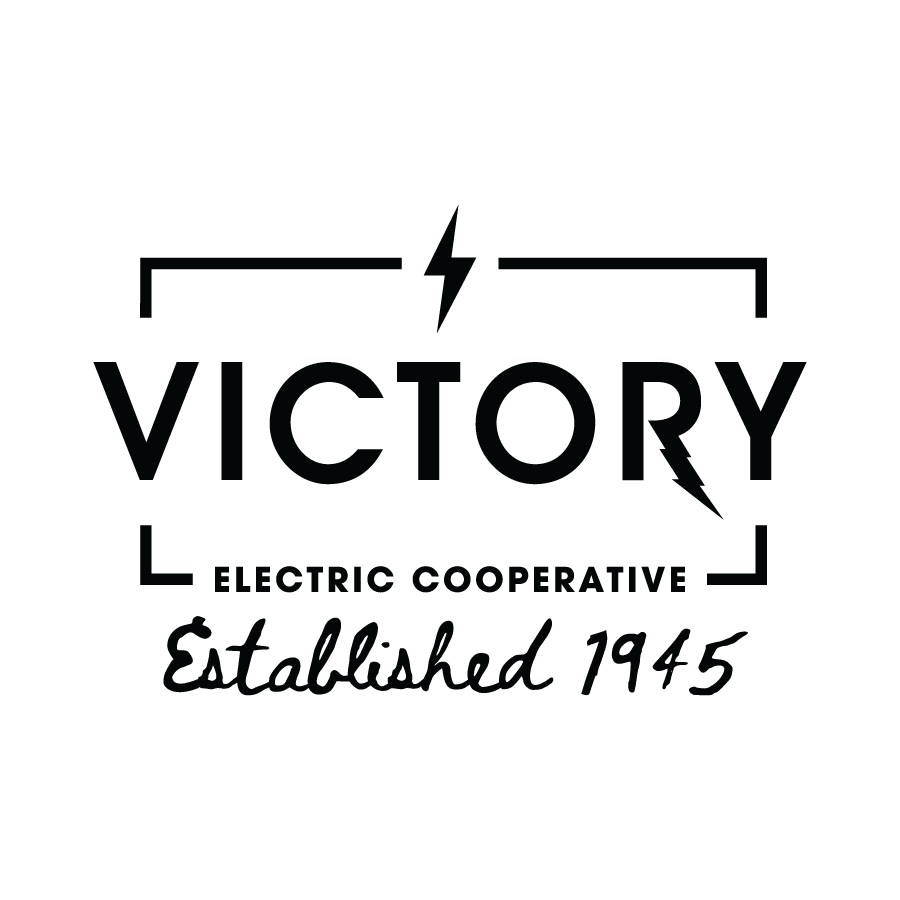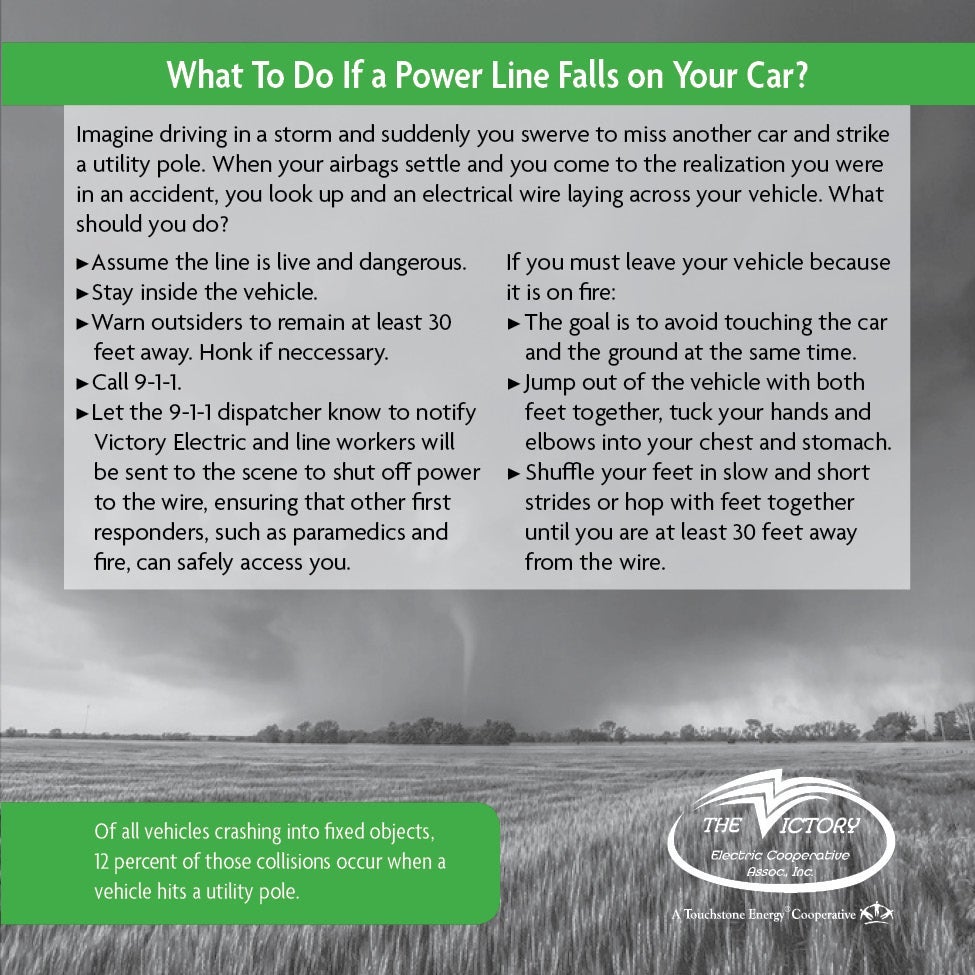If you are experiencing a power outage, please call our office at 620-227-2139 or 800-279-7915. Thank you!
Electric emergencies don’t often occur, but if they do, it is important to be ready. Knowing what to do in an emergency will help you and your family live better… and safer!
If an electrical injury or accident does occur, follow these procedures immediately:
- Call 911 for help and follow their instructions.
- Have first-aid supplies on hand and easily accessible.
- De-energize the circuit at the breaker panel.
- Make sure you are in a safe zone – not in contact with any electrical source, away from downed or broken wires.
- Never grab the person or pull the person off the current with your hands; you might become part of the circuit and become injured as well.
- If trained, administer first aid or rescue breathing and/or CPR; know what to do. If possible, take a class to prepare yourself.
- Do not move the person in case of injury to neck or back unless they are in danger.
- Keep the victim lying down, warm and comfortable to maintain body heat until help arrives.
- If the victim is unconscious, put him/her on side to let fluids drain.
- Make sure the victim receives professional medical attention (person shocked could have heart failure hours later).
- If the person is in contact with a live outdoor power line, immediately call Victory Electric at 620-227-2139.
- If a power line is down near your house, don’t touch it! Call us immediately, and stay at least 40 feet away from the area.
- Keep utility and medical emergency telephone numbers handy.

